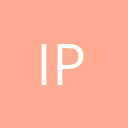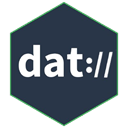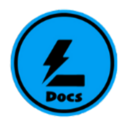Top Blockstack Alternatives: Explore Decentralized Web Options
Blockstack, a pioneering force in the decentralized internet movement, empowers users to reclaim ownership of their data and run applications locally through a simple browser portal. It promises a future where digital sovereignty is paramount. However, as with any emerging technology, exploring various options is crucial to find the best fit for your needs. This article delves into the top Blockstack alternative platforms that are also building a more open, free, and censorship-resistant web.
Discovering the Best Blockstack Alternatives
While Blockstack offers a compelling vision, the decentralized landscape is rich with innovative projects. Each alternative brings its unique approach to data ownership, privacy, and application hosting. Let's explore some of the most prominent contenders.

IPFS
IPFS (InterPlanetary File System) is a global, versioned, peer-to-peer filesystem, drawing inspiration from Git, BitTorrent, and the web. As a free and open-source platform available on Mac, Windows, Linux, and BSD, it's a strong Blockstack alternative for those seeking a distributed file system. Key features include Peer-To-Peer connectivity, a Decentralized architecture, and File sharing capabilities, making it excellent for resilient content delivery.

Freenet
Freenet is free, open-source software designed for anonymous file sharing, browsing, and publishing of "freesites." Available on Mac, Windows, Linux, and BSD, Freenet is a compelling Blockstack alternative if anonymity and censorship resistance are your primary concerns. Its core features include strong Anonymity, a Decentralized network, and Fully anonymous operations, providing a secure haven for information exchange.

Dat
Dat is a non-profit, secure, and distributed package manager for data, enabling local data versioning and internet-based sharing and syncing. As a free and open-source solution for Mac, Linux, and Electron/Atom Shell, Dat serves as an excellent Blockstack alternative focused on data distribution and synchronization. Its key features are Decentralized and Distributed architecture, along with robust File sharing and File-sync capabilities, ideal for collaborative data projects.

Solid
Solid, derived from "social linked data," proposes conventions and tools for building decentralized Web applications based on Linked Data. This free and open-source platform is available on Mac, Windows, Linux, and Web, offering a distinct Blockstack alternative for those interested in a decentralized web built on personal data stores (Pods). Solid's main features include a Decentralized and Distributed architecture, empowering users to control their personal data.

MultiBaas
Curvegrid's MultiBaas blockchain application server simplifies and accelerates the development of decentralized applications (DApps) on Ethereum and OmiseGO. As a Freemium and SaaS platform, MultiBaas is a compelling Blockstack alternative for developers focusing on enterprise-grade blockchain solutions. Its features include robust Blockchain integration, support for Ethereum, and Smart contracts, streamlining DApp development.

Decentralized Internet
This project aims to support a new internet that is more open, free, and censorship-resistant. Available as free and open-source software on a wide range of platforms including Mac, Windows, Linux, Web, and Android, it provides a comprehensive Blockstack alternative for those seeking a truly resilient web. Key features encompass Blockchain technology, Decentralized architecture, Distributed Computing, and Parallel Computing, all contributing to a more robust and free online experience.
The landscape of decentralized internet technologies is rapidly evolving, offering diverse solutions to empower users and foster a more open web. Whether you prioritize anonymity, data synchronization, or DApp development, exploring these Blockstack alternative options will help you find the best fit for your specific needs and contribute to the future of the internet.